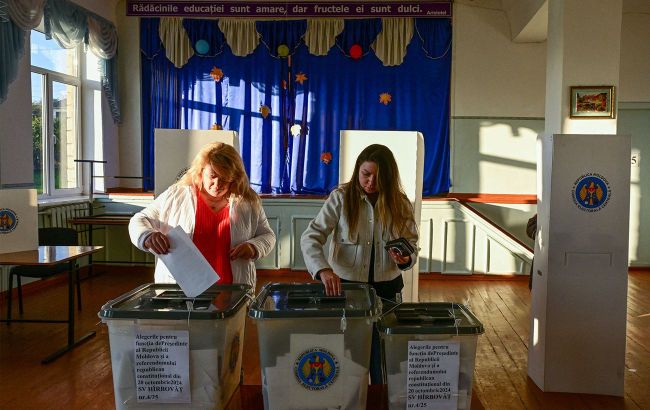ISW evaluates chances of candidates in second round of Moldovan presidential elections
 The result of the second round of the Moldovan presidential elections is difficult to predict (Illustrative photo: Getty Images)
The result of the second round of the Moldovan presidential elections is difficult to predict (Illustrative photo: Getty Images)
The Constitutional Court of Moldova will examine the results of the referendum on the country's accession to the European Union on October 31. Meanwhile, the third candidate from the first round of the presidential elections has announced that they will not support any candidate in the second round, according to a report from the Institute for the Study of War (ISW).
It is noted that on October 25, the Central Election Commission of the Republic of Moldova submitted its reports on the referendum to the court. According to the Electoral Code, the court has until November 4 to confirm or reject the results.
The ISW pointed out that despite numerous official reports from Moldovan media regarding violations during the voting on October 20, it remains unclear whether these reports will meet the necessary threshold for the Constitutional Court to declare the referendum results invalid.
Intrigue of the second round of the elections
Renato Usatii secured third place in the first round of the presidential elections in Moldova with 213,169 votes. On Monday, October 28, he announced that he would not support Maia Sandu or Alexander Stoianoglo in the second round of the presidential election on November 3.
Meanwhile, Vasile Tarlev, who garnered 49,316 votes in the first round, Ion Chicu, who received 31,797 votes, and Natalia Morari, who obtained 9,444 votes, all expressed their support for Stoianoglo.
"ISW recently assessed that Usatii's possible endorsement of Stoianoglo would likely have allowed Stoianoglo to seriously challenge Sandu in the second round, and it is unclear how Usatii's refusal to endorse either candidate will affect the outcome of the November 3 runoff," the report states.
Presidential elections and referendum in Moldova
On Sunday, October 20, the presidential elections and a referendum on the prospects of Moldova's accession to the European Union took place.
According to the preliminary results of the first round of voting, the incumbent president Maia Sandu emerged victorious.
Regarding the consultative referendum, the margin between supporters and opponents of the country's integration into the EU is less than 1%.
Analyst Ruslan Rokhov believes that Sandu will face challenges in winning the second round of the elections.

